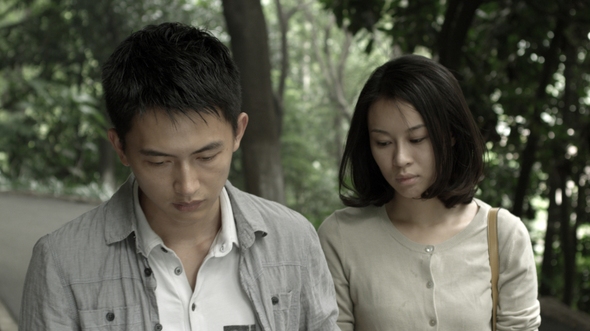
Vivian Qu was born in China. She has produced the features Night Train (07), Knitting (08), which screened at the Festival, and Longing for the Rain (13). Trap Street (13) is her directorial debut.
Trap Street is playing as part of the Discovery program at TIFF.
Women and Hollywood: Please give us your description of the film playing at TIFF.
Vivian Qu: The story is told through the eyes and many devices (survey machine, photo cameras, etc.) of a young digital mapping surveyor, who is typical of
his generation, occupied and consumed by technology. He is innocent, energetic, and upbeat, until one day he meets a mysterious woman and falls in love
with her. He sets out to discover the truth about the woman, but only to stumble upon a bigger truth that is hidden beneath the shiny veneer of our
society.
WaH: What drew you to this script?
VQ: When I returned to China ten years ago to pursue my dream of making independent films, I immediately found myself in a place that is both familiar and
strange. On the surface, the society is pushing forward determinedly toward great economic success, and people seemed to be enjoying many new found
freedoms through the internet, media and technology. Yet underneath it, there is an uneasy feeling that things may not look the way they are. As time went
by the feeling grew only stronger, until one day I realized that I had too many questions but not enough answers. That’s when I sat down and started to
work on the script of Trap Street.
WaH: What was the biggest challenge?
VQ: Like in all low budget films the biggest challenge is how to protect your artistic vision under money constraints. You have to think really creatively
when you make adjustments and even sacrifices so as not to lose sight of the big picture.
WaH: What advice do you have for other female directors?
VQ: Ignore the fact that you are a woman. Period.
WaH: What’s the biggest misconception about you and your work?
VQ: Trap Street is my first film so I can’t say there is already misconception about me or my work. But I did hear from a sales rep that my film
is not exotic enough and thus wouldn’t play to a greater audience. I very much want to challenge that notion. In our day and age do we still have the
illusion that China is this remote, picture-perfect oriental village?
WaH: What are the biggest challenges and or opportunities for the future with the changing distribution mechanisms for films?
VQ: This issue is really outside my realm of specialty. I’m one of those who wish that films will forever be seen on big screens. But I also believe that
changes in distribution mechanisms will bring about new forms of creativity.
WaH: Name your favorite women directed film and why.
VQ: Agnes Varda and her many films. The Gleaners and I taught us how to look at ourselves and the world we live in through the most minute
details. Films are about looking and seeing. The highest drama often lies in the most mundane.






